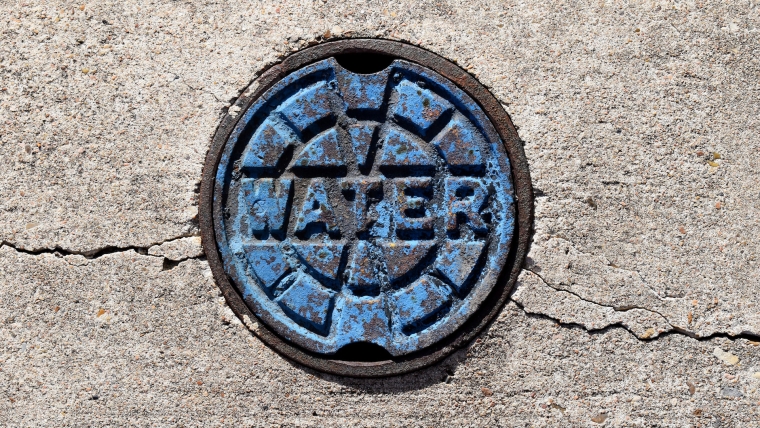
Have you ever seen a magic trick? It usually begins with ‘the Pledge’, when the magician presents something ordinary such as a coin, a bird, or a deck of cards.
Then comes ‘the Turn’, when that ordinary thing vanishes or transforms. Finally there is ‘the Prestige’, when the illusion is revealed in a satisfying payoff.
During this three act play, the magician distracts the audience with ‘misdirection’ while the real work happens in ‘the method’ that makes the illusion possible.
If the Government's local water reforms are a magic trick, then balance-sheet separation is the misdirection. It doesn’t change economic reality, it uses smoke and mirrors to change its appearance.
The method, which does the real work, is establishing a management model that can lift water charges where politicians wouldn’t, and that sidesteps the Local Government Funding Agency’s debt limits.
Audiences marvel at ‘the Prestige’ (improved water services and smaller council rate hikes), but fail to notice overall higher debt levels and increased water charges making those things possible.
This is the trick S&P Global Ratings has been revealing in a series of research notes on the subject, the latest released on Wednesday.
To be clear, S&P doesn’t oppose these reforms, it just seeks to demystify them.
In its note, the credit rating agency said the Coalition Government’s water reforms don’t necessarily reduce councils’ underlying credit risk.
“In capital markets, off the books doesn't always mean off the hook. As New Zealand local councils pursue new water service models, we think shifting assets and liabilities ‘off-balance sheet’ may ease the optics but not the underlying credit risk,” the analysts wrote.
Short history of lengthy reform
The government began pursuing water reform after contamination in Havelock North killed four people in 2016 and revealed deep flaws in regulation and funding.
In 2021, Labour proposed four regional entities to run water services — a plan opposed by councils unwilling to give up assets and by some voters wary of iwi co-governance.
National campaigned in 2023 on allowing councils to design their own water plans, as long as they met strict standards for price, investment, and quality.
More than half of the 68 councils that run their own water services chose to join forces, forming 12 multi-council entities. Another eight created stand-alone, council-owned companies, while the rest kept services in-house.
Not all plans have been approved, and further consolidation is likely. Waitaki District Council, for example, tried to go it alone but has been told to start again.
S&P said it will “almost certainly” count the debt of single-council entities when assessing their parent councils’ finances. Multi-council entities backed by joint guarantees also have a “very high” chance of being included.
In other words, the rating agencies and many investors are unlikely to view the entities and councils as having separate balance sheets or credit ratings.
Anthony Walker, S&P's Director of Government Ratings, said an entity would face much higher borrowing costs if it were fully separated from its council or the Crown’s balance sheet.
Some structures, however, would allow councils to borrow more without endangering their current credit rating.
“Some will be better off, some will be worse off, and some will be somewhere in the middle,” he said.
Hutt up
One such winner is Upper Hutt City Council. On Thursday, S&P Ratings lifted its outlook from stable to positive in response to the council’s water plan.
Upper Hutt is joining Porirua, Wellington and the Greater Wellington Regional Council to form a jointly owned water company called Metro Water. It will charge for water separately from rates and use that revenue to service debt.
Because the Local Government Funding Agency (lLGFA) will treat Metro Water and its owners as separate entities, the new utility will be able to borrow more and spread infrastructure costs across future generations.
As noted above, international investors and credit rating agencies will still treat Metro Water’s debt as a contingent liability on the councils’ balance sheet. This won’t necessarily weaken their credit rating if the debt is backed by enough revenue.
That is the real magic trick. It isn’t balance sheet separation that enables more borrowing, but higher water charges and avoidance of the LGFA’s borrowing cap.
It makes councils appear financially stronger and lets them take on more debt, while ratepayers still face higher water bills and minimal relief in overall costs long-term.
5 Comments
"That is the real magic trick. It isn’t balance sheet separation that enables more borrowing, but higher water charges and avoidance of the LGFA’s borrowing cap."
As was 3 Waters....and anyone who didnt understand that ultimately the increased spending was going to be recovered from the public wasnt thinking.
As has been the case from day one the cheapest funding option for the required spend is direct central government
Yes, but even the cheapest 'spend' is too expensive now. Watch for ever-lower targets.
This is good journalism, in terms of delving into the 'what?'.
Next the 'why?'.
Yes everthing is now too expensive and I suggest that can be traced back to EROEI, but if we make useable water too expensive what future do we have?
We're going to pay either way, but the financial sleight of hand is yet another distraction from the reality of our neglected infrastructure.
Perfectly put - but they have no other 'tools' in their 'toolbox'.
Neither did Canute.

We welcome your comments below. If you are not already registered, please register to comment
Remember we welcome robust, respectful and insightful debate. We don't welcome abusive or defamatory comments and will de-register those repeatedly making such comments. Our current comment policy is here.